Indigenous Governance Database
domestic violence
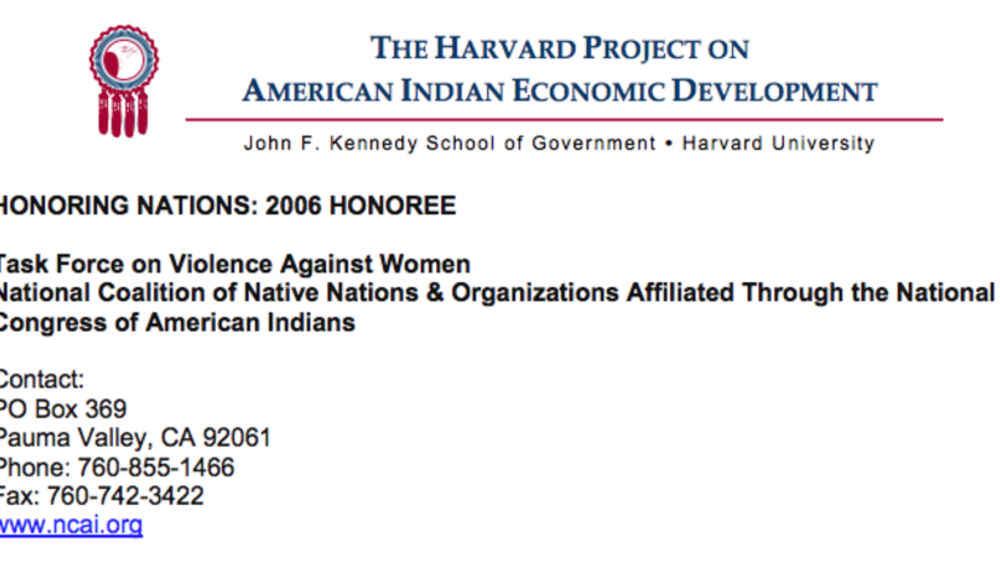
NCAI Task Force on Violence Against Women
Recognizing and acting upon the belief that safety for Native women rests at the heart of sovereignty, leadership from Native nations joined with grassroots coalitions and organizations to create an ongoing national movement educating Congress on the need for enhancing the safety of Native women.…
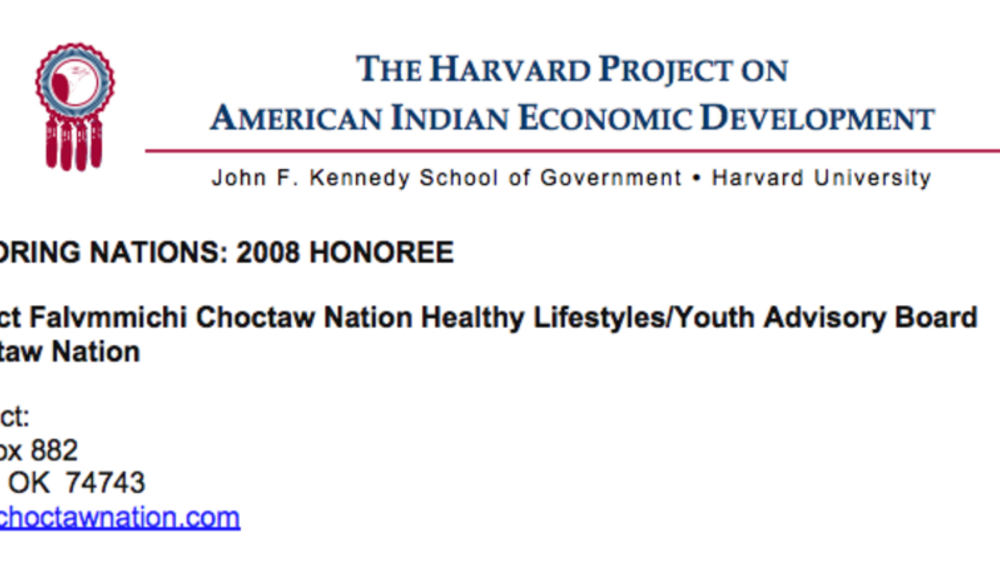
Project Falvmmichi (Choctaw Nation of Oklahoma)
"It is not cool to hit or be hit" is the straightforward motto of Project Falvmmichi, a school-based program of the Choctaw Nation designed to tackle the problem of domestic violence. The program teaches elementary school students positive ways to deal with anger and resolve conflicts. Today, more…
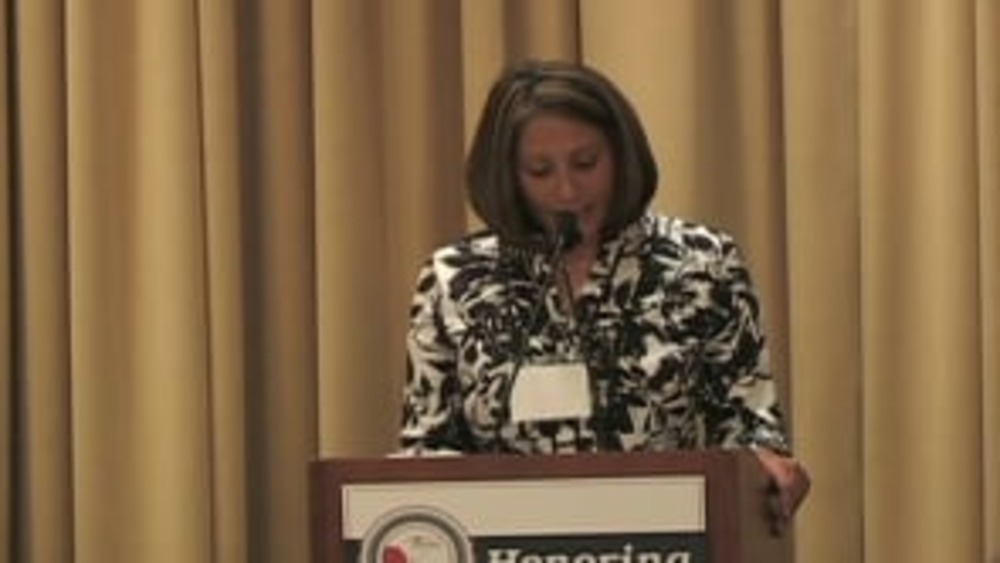
Honoring Nations: Joyce Wells: Project Falvmmichi
Choctaw Nation Healthy Lifestyles Program Director Joyce Wells describes how a 16-year-old Choctaw citizen transformed her idea and passion into a comprehensive education and mentoring program that seeks to prevent domestic violence in Choctaw communities.
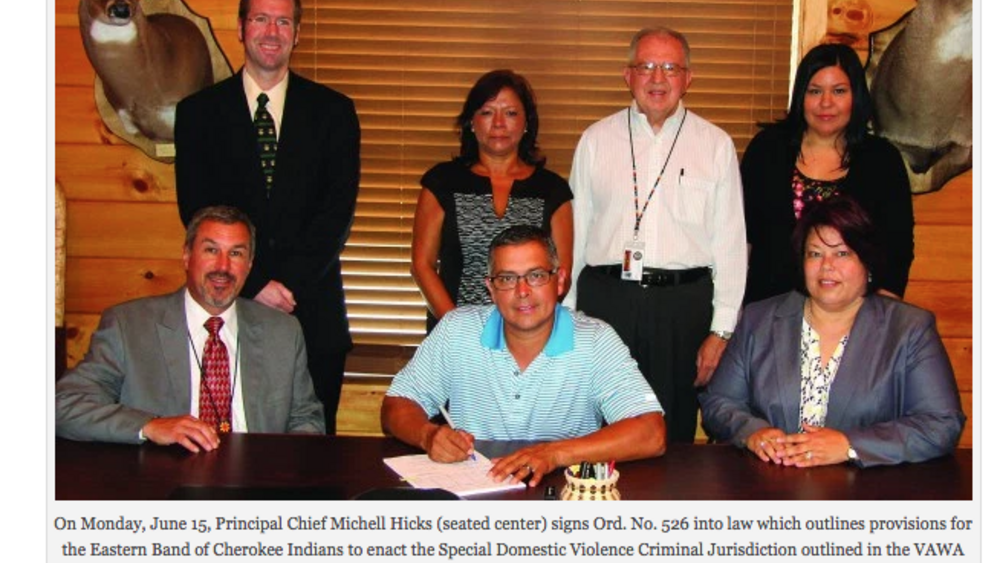
Tribe asserts DV jurisdiction over non-Indians
The U.S. Department of Justice has reported that American Indian women “are more than 2.5 more likely to be raped or sexually assaulted than women in the USA in general”. The DOJ also reports, per its Bureau of Justice Statistics, that at least 70 percent of the “violent victimizations experienced…
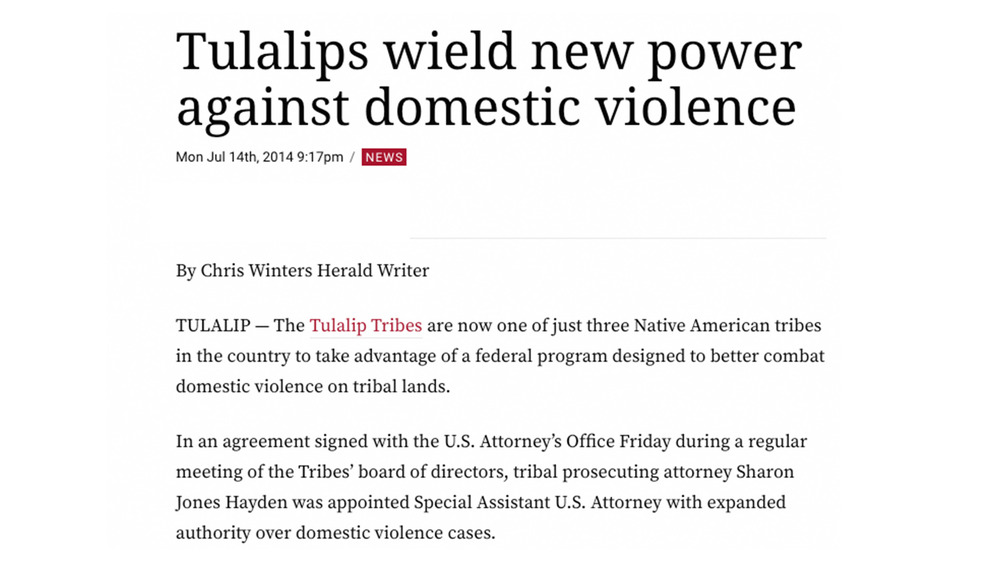
Tulalips wield new power against domestic violence
The Tulalip Tribes are now one of just three Native American tribes in the country to take advantage of a federal program designed to better combat domestic violence on tribal lands. In an agreement signed with the U.S. Attorney’s Office Friday during a regular meeting of the Tribes’ board of…
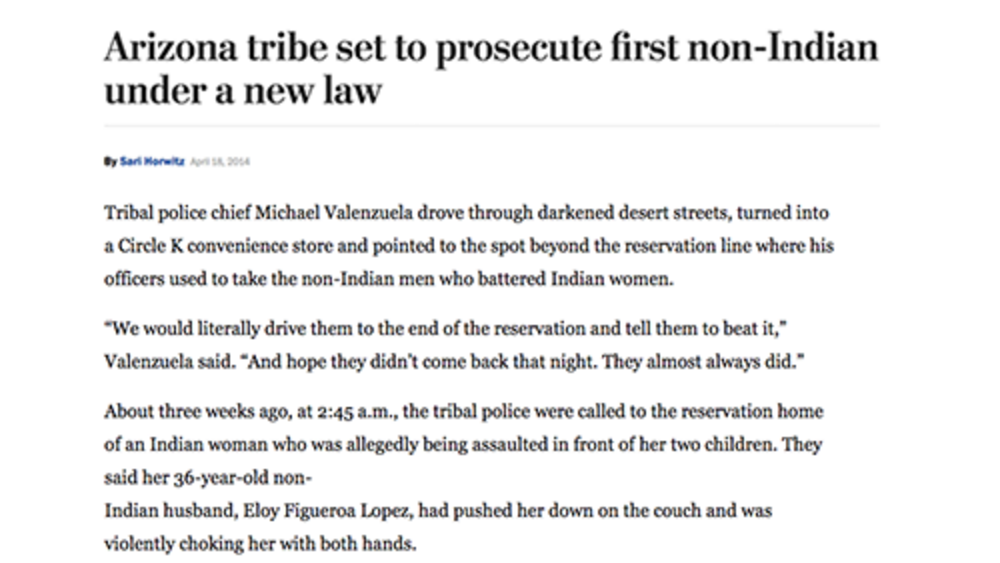
Arizona tribe set to prosecute first non-Indian under a new law
Tribal police chief Michael Valenzuela drove through darkened desert streets, turned into a Circle K convenience store and pointed to the spot beyond the reservation line where his officers used to take the non-Indian men who battered Indian women. “We would literally drive them to the end of the…
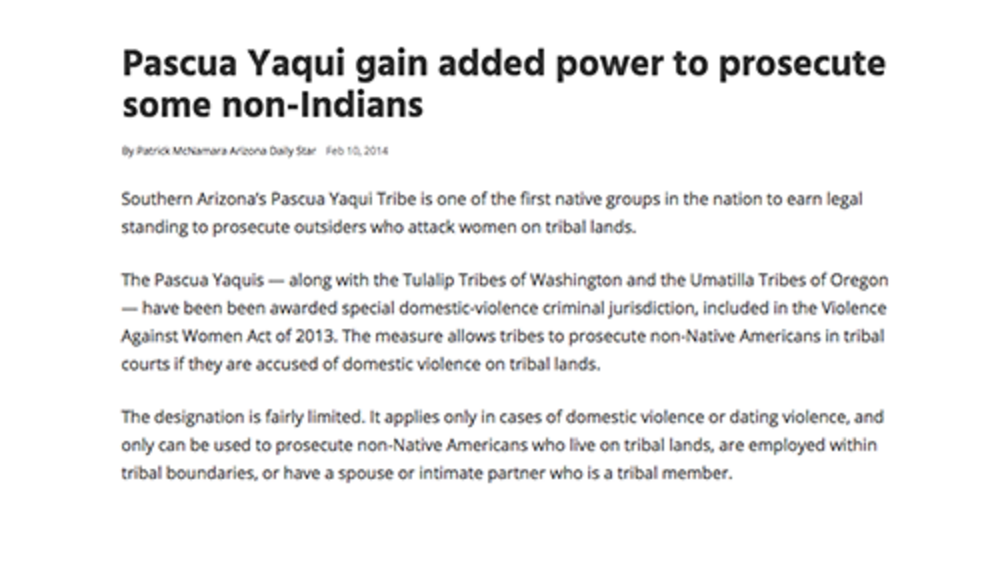
Pascua Yaqui gain added power to prosecute some non-Indians
Southern Arizona’s Pascua Yaqui Tribe is one of the first Native nations in the country to earn legal standing to prosecute outsiders who attack women on tribal lands. The Pascua Yaquis – along with the Tulalip Tribes of Washington and the Umatilla Tribes of Oregon – have been been awarded special…
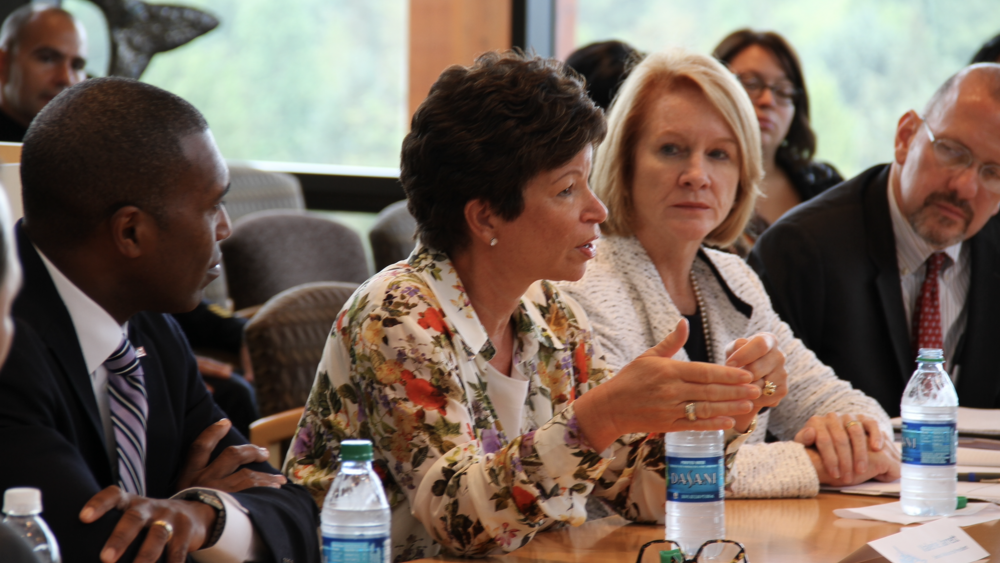
Health, Innovation and the Promise of VAWA 2013 in Indian Country
Yesterday morning, we made our way north from Seattle, past gorgeous waterways, and lush greenery to visit with the Tulalip Tribes of western Washington, where we were greeted by Tribal Chairman Mel Sheldon, Vice Chairwoman Deb Parker, and Chief Judge Theresa Pouley. We saw first-hand, a tribal…
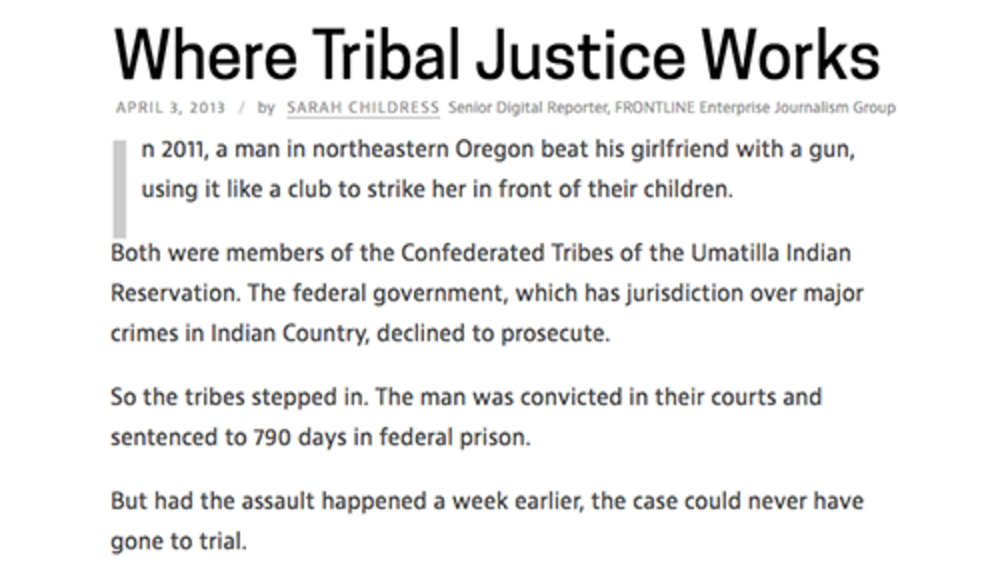
Where Tribal Justice Works
In 2011, a man in northeastern Oregon beat his girlfriend with a gun, using it like a club to strike her in front of their children. Both were members of the Confederated Tribes of the Umatilla Indian Reservation. The federal government, which has jurisdiction over major crimes in Indian Country,…

Navigating VAWA's New Tribal Court Jurisdictional Provision
President Obama signed into law the reauthorization of the Violence Against Women Act (VAWA), a federal statute that addresses domestic violence and other crimes against women. As initially conceived in 1994, VAWA created new federal crimes and sanctions to fill in gaps, provided training for…
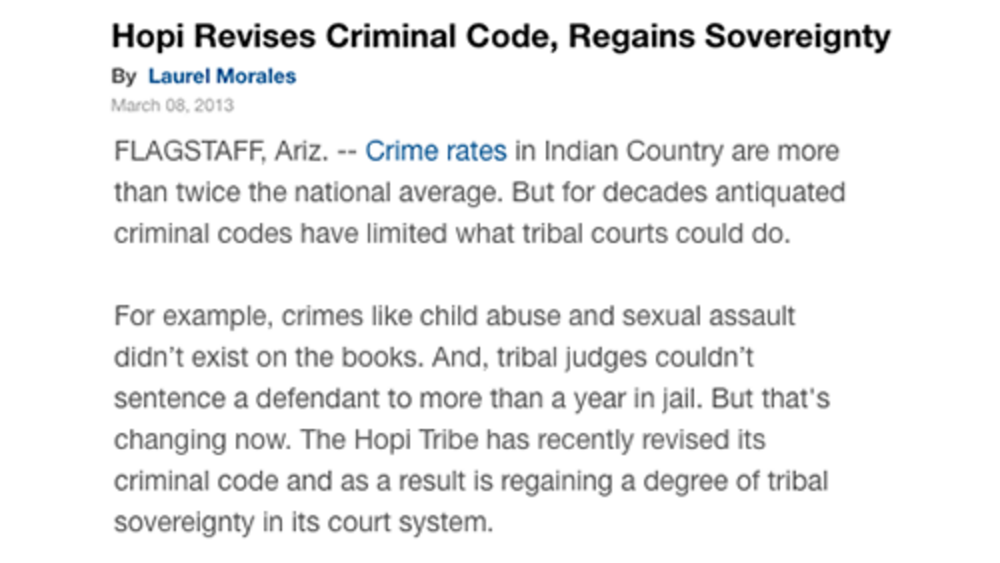
Hopi Revises Criminal Code, Regains Sovereignty
Crime rates in Indian Country are more than twice the national average. But for decades antiquated criminal codes have limited what tribal courts could do. For example, crimes like child abuse and sexual assault didn’t exist on the books. And, tribal judges couldn’t sentence a defendant to more…
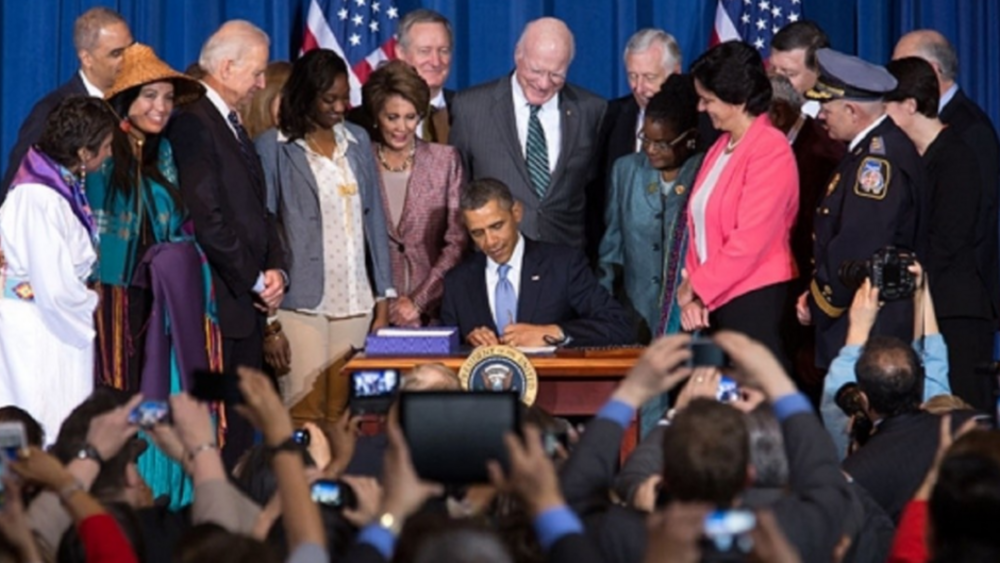
VAWA 2 Years Later
It’s been just over 2 years since Congress reauthorized the Violence Against Women Act. In February of last year, three tribes participated in a pilot project to exercise the special domestic violence criminal jurisdiction (SDVCJ) portion of the law. Under SDVCJ, some tribes can prosecute Natives…
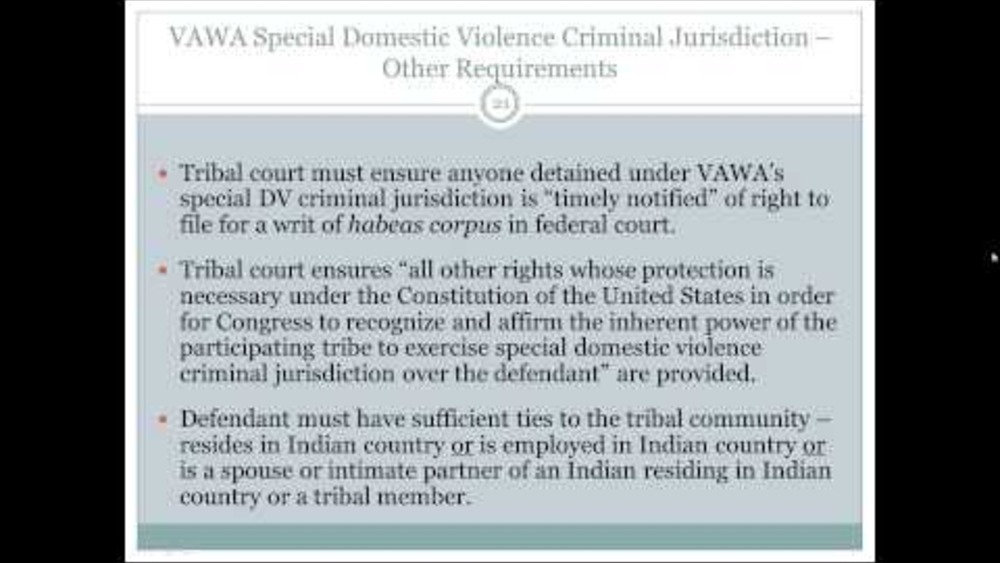
Implementing VAWA's Expanded Jurisdiction in Our Tribal Courts
In coordination with the Tribal Law and Policy Institute, NCAI hosting this webinar on April 5, 2013. In this webinar, panelists discussed the Violence Against Women Act (VAWA) provisions that expands tribal court jurisdiction over all persons for certain crimes committed on the reservation.
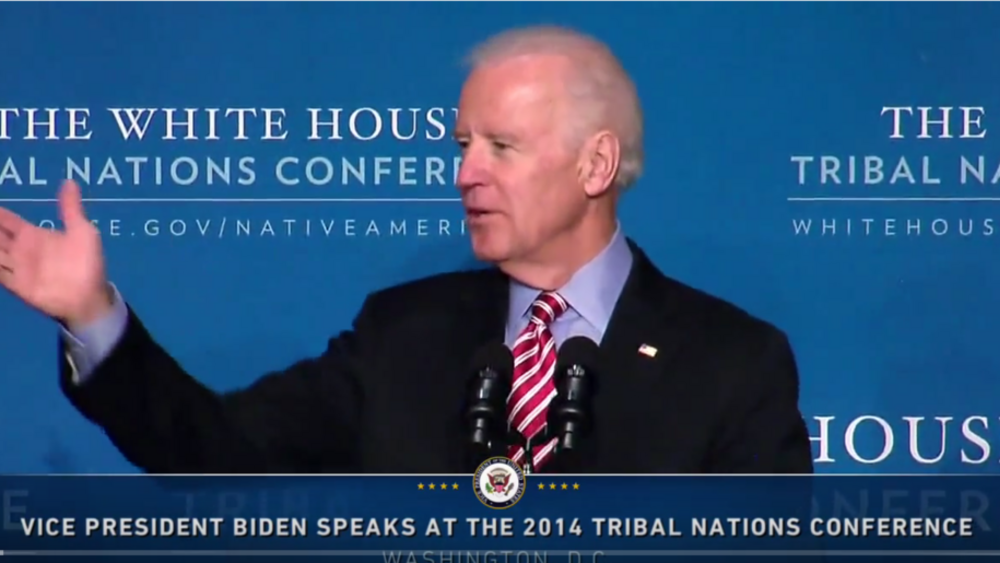
Vice President Biden Speaks at the 2014 White House Tribal Nations Conference
On December 3, 2014, Vice President Joe Biden addressed the 2014 White House Tribal Nations Conference. At the conference, leaders from the 566 federally-recognized Native nations engaged with the President, Cabinet Officials, and the White House Council on Native American Affairs on key issues…
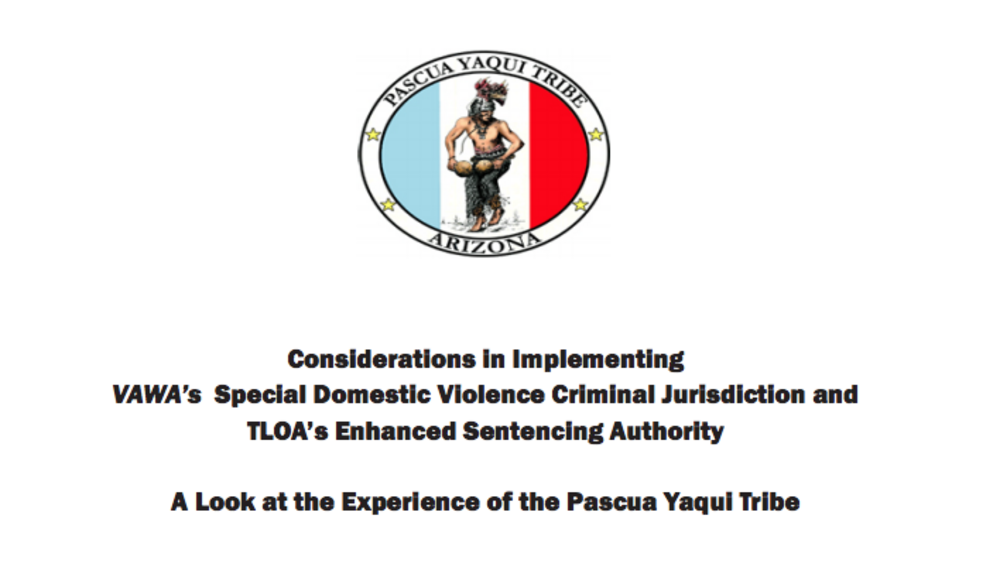
Considerations in Implementing VAWA's Special Domestic Violence Criminal Jurisdiction and TLOA's Enhanced Sentencing Authority: A Look at the Experience of the Pascua Yaqui Tribe
On February 20, 2014, pursuant to the Violence Against Women Reauthorization Act of 2013 (VAWA 2013), the Pascua Yaqui Tribe was one of only three Tribes across the United States to begin exercising Special Domestic Violence Criminal Jurisdiction (SDVCJ) over non-Indian perpetrators of domestic…
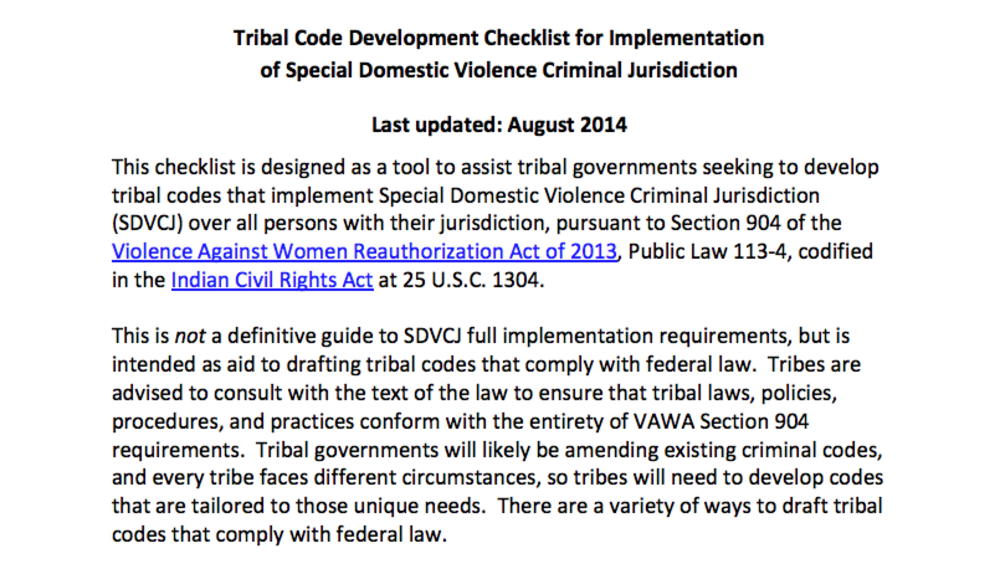
Tribal Code Development Checklist for Implementation of Special Domestic Violence Criminal Jurisdiction
This checklist (click to download) is designed as a tool to assist tribal governments seeking to develop tribal codes that implement special domestic violence criminal jurisdiction (SDVCJ) under section 904 of VAWA 2013. Tribal governments will likely be amending existing criminal codes, and every…
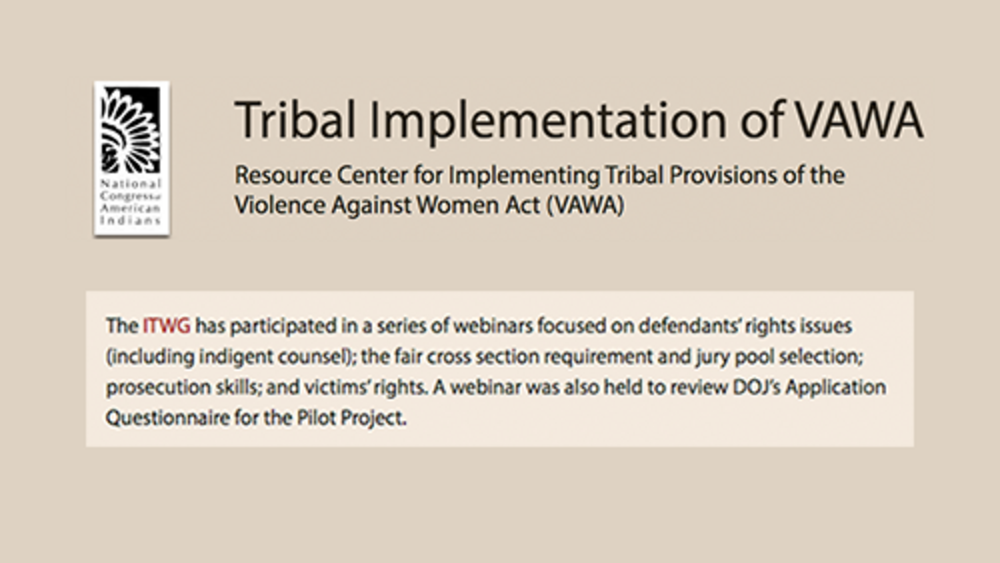
Resource Center for Implementing Tribal Provisions of the Violence Against Women Act (VAWA): Webinars
The Intertribal Technical-Assistance Working Group on Special Domestic Violence Criminal Jurisdiction (ITWG) has participated in a series of webinars focused on defendants' rights issues (including indigent counsel); the fair cross section requirement and jury pool selection; prosecution skills;…
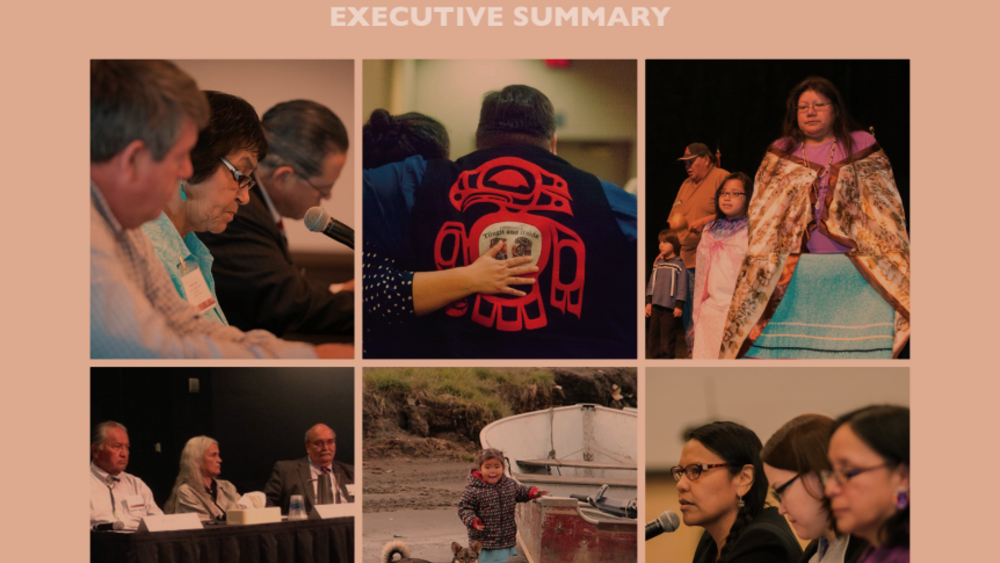
Attorney General's Advisory Committee on American Indian/Alaska Native Children Exposed to Violence: Ending Violence so Children Can Thrive
This report was created as part of the Defending Childhood Initiative created by Attorney General Eric H. Holder, Jr. This initiative strives to harness resources from across the Department of Justice to: Prevent children's exposure to violence. Mitigate the negative impact of children's…
